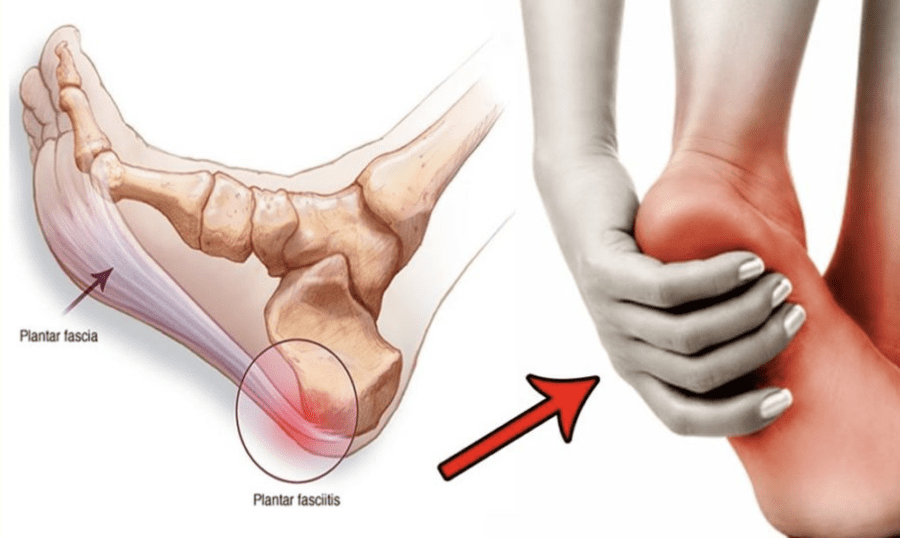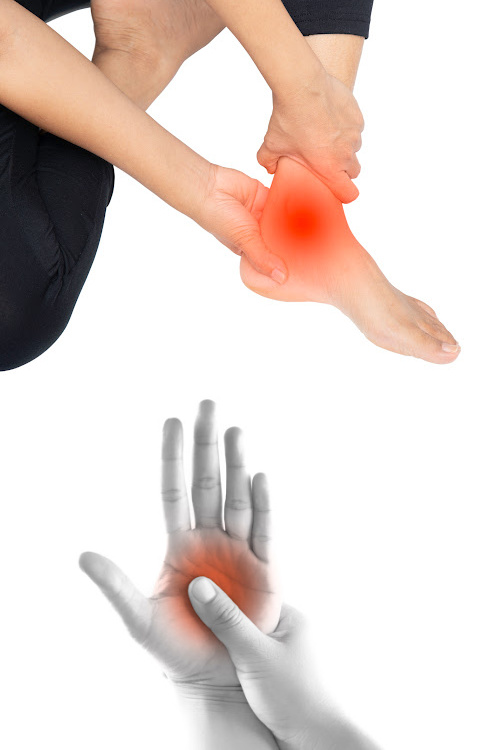Dealing with chronic foot pain is debilitating enough as it is. After all, our feet are an essential part of our everyday lives, and any pain that interferes with their proper functioning can disrupt our daily activities. Many people attempt to treat foot pain at home by resting, stretching, or using over-the-counter medications.
While these methods may be sufficient in managing minor aches and pains, they may not always address the root cause of chronic discomfort – this is especially true if your foot pain is getting worse over time. If your chronic foot pain worsens, seeking medical attention as soon as possible is crucial.
Why Does Foot Pain Gets Worse Over Time?
If you’re suffering from chronic foot pain that’s worsening, there are a few reasons why this may be happening. Some common causes of worsening foot pain include:
Structural Changes In The Foot
Over time, our feet can undergo structural changes, such as fallen arches or bone spurs, which can cause your foot pain to worsen. These structural changes may be caused by genetics, injury, or repetitive strain on the foot due to certain activities or footwear. Additionally, the pain you’re experiencing in your foot could be causing you to change how you walk, putting added stress on other areas of your foot and exacerbating the problem.
Underlying Conditions
In some cases, chronic foot pain that worsens over time may be a symptom of an underlying medical condition, such as plantar fasciitis or arthritis. These conditions can cause inflammation and damage to the tissues and joints in the foot, leading to ongoing and worsening pain.
Conditions Associated With Chronic Foot Pain
Various underlying conditions associated with chronic foot pain can worsen over time. These conditions often affect specific parts of the foot, causing localized pain and discomfort. Some common conditions include:
Plantar Fasciitis
Plantar fasciitis is a common medical condition that can cause chronic pain in the plantar fascia. The plantar fascia is a band of tissue that stretches from the toes to the heel in the bottom of the foot. Plantar fasciitis is usually the result of repetitive strain on the plantar fascia. This strain can be caused by everything from running to standing for long periods.
If the plantar fascia is inflamed or strained, it can result in severe heel and arch pain. Without proper treatment, the plantar fascia can become more damaged and inflamed over time, leading to worsening pain.
Peripheral Neuropathy
Peripheral neuropathy affects the feet’s nerves and can cause tingling, numbness, and pain. Over time, this condition often leads to nerve damage and worsening symptoms. Peripheral neuropathy is often caused by underlying health issues such as diabetes, vitamin deficiencies, or autoimmune disorders.
Rheumatoid Arthritis
Rheumatoid arthritis is a condition that can lead to chronic foot pain and stiffness. If left untreated, the inflammatory condition can cause damage to the joints and tissues in the foot, leading to worsening symptoms and comorbidities, such as peroneal nerve dysfunction.
Osteoarthritis
Osteoarthritis is a degenerative joint disease. It can affect the joints in your feet by causing pain and stiffness. Over time, the cartilage in your joints can wear down, leading to bone-on-bone contact and increased inflammation, causing worsening pain and limited mobility. Osteoarthritis is often caused by aging, repetitive joint strain, and previous injuries.
Factors That Worsen Foot Pain
Aside from underlying conditions, other factors can contribute to worsening foot pain. Some of these include:
- Smoking or drinking alcohol excessively: Such habits can impair blood flow to the feet, leading to reduced oxygen and nutrients reaching the tissues and joints, causing increased inflammation and pain.
- Not getting enough exercise: Lack of physical activity can lead to weakened muscles, which can put added strain on your feet and exacerbate existing foot pain.
- High heels: Wearing high heels can put added pressure on specific areas of your foot, leading to inflammation and worsening pain over time.
- Foot-impact activities: Certain physical activities (such as martial arts) can put added strain and impact on your feet, causing damage to the tissues and joints and worsening foot pain.
- Not controlling blood pressure or cholesterol: High blood pressure and high cholesterol can lead to reduced blood flow to the feet, causing neuropathy and pain.
- Sitting for long periods of time: Sitting for too long can result in poor circulation in the feet, contributing to worsening foot pain.
- Walking barefoot on hard surfaces: Walking without proper support on hard surfaces can put added strain on your feet, leading to inflammation and pain.
- Wearing ill-fitting shoes: Wearing footwear that is too tight or does not provide proper support can cause discomfort and contribute to worsening foot pain over time.
When Should I See A Doctor?
In some cases, such as if you’re experiencing minor foot pain that improves with rest and home remedies, you may not need to see a doctor. However, if your foot pain worsens over time or is accompanied by additional symptoms, seeking medical attention is crucial. Some signs that you should see a doctor include:
- Pain does not improve over time with self-care
- Pain keeps coming back time and time again
- Foot changes color or shape
- Pain is accompanied by fever and nausea
- You just suffered an injury
- You have diabetes
- You are also taking steroids
Diagnostic Procedures For Chronic Foot Pain
If your foot pain is chronic and worsening over time, your doctor may recommend certain diagnostic procedures to determine the underlying cause. These may include:
- Physical examination: Your doctor will evaluate your foot for any visible signs of injury or inflammation by conducting a physical exam.
- X-rays: X-rays can provide a detailed image of the bones in your feet, helping to identify structural issues or any underlying conditions.
- MRI or CT scans: These imaging tests can provide more detailed images of the tissues and joints in your feet, helping to diagnose conditions such as plantar fasciitis or arthritis.
- Blood tests: Your doctor might order blood tests to check for underlying health issues causing your foot pain, such as diabetes or autoimmune disorders.
They will also ask about your medical history, including any previous injuries or underlying conditions, to better understand your symptoms and potential causes.
Conventional Medical Treatments For Chronic Foot Pain
If home remedies and self-care measures are not enough to manage your foot pain, your doctor may recommend conventional medical treatments. Some of these include:
- Orthotics: Orthotics are shoe inserts that will provide more support and relieve pain in specific areas of the foot. Orthotics are often custom-made.
- Casts: In severe cases, your doctor may immobilize your foot with a cast to allow the tissues and joints to heal.
- Physical therapy: Physical therapy can help prevent worsening pain by improving the strength, flexibility, and mobility in your feet.
- Prescription medication: Your doctor will often prescribe medication to manage pain and inflammation. These medications include nonsteroidal anti-inflammatory drugs (NSAIDs) or corticosteroids. The problem with these drugs is they can be associated with various side effects and generally only provide temporary relief.
- Surgery: In some cases, surgery might be required to correct underlying issues or relieve pressure on specific areas of the foot causing pain. The primary drawback of surgery is the potential complications you may encounter during the operation and recovery period, such as infection or blood clots. That’s why doctors recommend surgery only after all other options are exhausted.
Our Approach To Chronic Foot Pain
We employ the Neuragenex Neurofunctional Pain Management approach to treating chronic foot pain. Our protocol addresses the neurological factors contributing to chronic pain caused by various underlying health conditions. We use a whole-person method that has been shown to be both safe and effective. In fact, all of our treatment modalities are non-surgical, non-invasive, non-chiropractic, and drug-free, making our protocol the perfect alternative to conventional treatment solutions – including surgery.
In addition to using treatments such as electroanalgesia and IV therapy to help increase blood flow and reduce inflammation (thereby helping to reduce chronic pain), we also provide lifestyle counseling to help patients make necessary adjustments to their daily routines that can impact chronic pain levels.
Electroanalgesia
Electroanalgesia is a pain management technique that uses high-pulse electrical current to ease pain, boost blood circulation, improve mobility, and induce...
IV Therapy
IV nutritional therapy, or intravenous therapy, involves administering vital nutrients directly to the bloodstream through an IV. This type of treatment bypasses the digestive system, allowing for maximum absorption and utilization of nutrients by the...
Lifestyle Counseling
Lifestyle counseling is an approach to managing chronic pain that involves identifying, assessing, and modifying lifestyle factors contributing to an individual's pain. For example, lifestyle factors such as nutrition, physical activity, stress, sleep quality...
We Manage Chronic Foot Pain-Causing Conditions

Plantar Fasciitis Pain Treatment
Neuragenex NFPM is a non-surgical, drug-free solution to relieve pain associated with plantar fasciitis. Our revolutionary treatment helps to reduce inflammation and improve mobility while providing extended relief from chronic heel pain. With our Neuragenex...

Peripheral Neuropathy Pain Treatment
We offer a unique and leading-edge approach to treating the burning, tingling, throbbing pain that may be associated with peripheral neuropathy or nerve damage. We have helped 100’s of patients, just like you, reduce their pain fast and get back to living...

Osteoarthritis Pain Treatment
Osteoarthritis is often linked to joint pain. But the impact that this condition has on your life is of much greater magnitude. If you have osteoarthritis, the chances are that you experience a pain so intense that it prevents you from climbing stairs,...

Rheumatoid Arthritis Pain Treatment
Rheumatoid arthritis can be a debilitating and painful condition that causes swelling, joint damage, and immobility. We offer a non-invasive, non-chiropractic solution to alleviate the pain associated with rheumatoid arthritis. Our treatments are designed to...
Stop Foot Pain From Getting Worse Over Time
Chronic foot pain can significantly impact your quality of life and make it difficult to perform daily activities. It’s vital to address the underlying cause of your foot pain and seek proper treatment to prevent it from worsening over time. We provide a whole-person approach to managing chronic foot pain and improving overall wellness. By addressing the neurological factors contributing to your symptoms and using non-surgical, non-invasive treatments, we can help you manage your chronic foot pain and prevent it from worsening over time.
Discover new treatments that may help with chronic foot pain. Learn more about how we treat plantar fasciitis.




